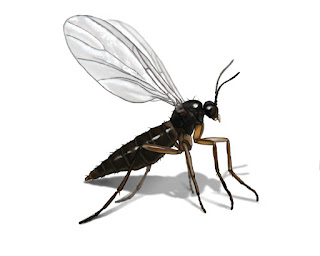The first step of how to get rid of gnats in the house is to remove food that is sitting out. Gnats thrive on food that is left out including fruit bowls, trash cans, and the rotting compost bin. Gnats have a great sense of smell and can detect these food sources from a long way. Gnats do not just come one by one either, they travel in huge packs and will breed indoors as well. This can be very disconcerting to know that there are insects breeding in the kitchen where people prepare and eat their food.
The first step is to take any food that is sitting out in a counter and store it away. If there are currently gnats hovering above the fruit bowl it is important to throw that fruit away. There could be eggs inside the current fruit that will hatch and breed. Put this fruit in a sealed bag and get it out to the garbage on the sidewalk as soon as possible. A fruit bowl can still be kept in the kitchen but it should be kept inside the refrigerator. A fruit bowl that is in the refrigerator will be harder for the gnats to access.
Gnats will also be very interested in the rotting and decomposing food in the compost pile. The compost pile can actually be kept in the freezer to avoid gnats feeding on it. The freezer will keep the food in the compost from rotting and smelling and food can be added to it while it is in the freezer. The compost can be taken out of the freezer and put in the compost pile once it is full.
One nifty trick to trap the gnats in the house is to fill a jar with regular household vinegar and to poke very small holes in the top of the jar. The gnats are attracted to the strong scent of the vinegar and will fly into the jar through the tiny holes to get to it but will not be able to escape once inside the jar.
Tags :
Pests And Diseases
Subscribe by Email
Follow Updates Articles from This Blog via Email


No Comments